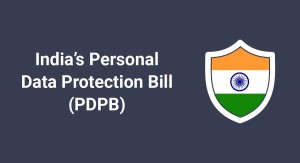Delhi, India Oct 27, 2023 (Issuewire.com) - Kapp Edge Solutions is India's premier institute offering training and consulting in forensic accounting, cyber security, and fraud prevention. We have helped thousands of professionals and organizations with fraud prevention and minimises their losses due to fraud.
In the world that we live in today, it has become the norm to share our date of birth on social platforms we post our holiday pictures, children's cute videos and images on Instagram, and tweet about our thoughts on various matters on Twitter. Because this has become normality, we forget to sometimes sit back and think about exactly who can access this information. We normally post this stuff for our relatives and friends to see however, total strangers and cybercriminals are able to access personal data and are able to study your social media to gain insights and information about you which they can use to power criminal activity, such as fraud and phishing attacks.
The statistics of data breaches are shocking;
According to a study by security researcher Atul Nair, 11 crore Indian farmers’ sensitive info was leaked via adhar misuse in 2022. As per another shocking report in 2018, some unidentified groups were found selling the Aadhaar data of over one billion people at just $7.88 (INR 500).
Useful ways to protect data
While Indian regulators are working towards making stringent laws of data protection and cyber laws, it's important that we follow a few simple steps to protect our personal information ( as far as possible)
1. Don't Do Your Online Shopping and Banking with public wifi
When you use a shared computer or a business's WiFi connection, you don't know how secure the network really is. Avoid connecting to airport/ café wifi while doing secured transactions. Use your own device and secure network instead.
2. Update Your Software Regularly
Keep updating the phone and computer software including antivirus software. Cyber threats change frequently, and many updates address security issues.
3. Don't Give Out Personal Information on the Phone or Through Email or Text
Don't give out your info. If you think the request may be legitimate, separately look up the organization's phone number and follow up by phone.
4. Be Careful About Opening Email Attachments or Clicking Links
Either of these actions can infect your computer with malware.
Only log into sites that start with https://
If you’re about to log into any site, especially payment-related sites like banking, make sure the address at the top of your web browser starts with https:// and not http://. You may also see a padlock symbol next to the site address.
The “S” stands for “secure,” and it means the site is encrypting your data.
There is no “completely secure” Internet, no one is ever completely secure online
while you don't think you've been hacked, there's an increasingly likely chance some of your personal information has already been compromised by a data breach.
Author Kanwaljeet Kaur Soni is a qualified chartered accountant and international investigator carrying very rich experience in fraud detection and prevention.
https://www.linkedin.com/in/kanwaljeetcfe/
https://kappedge.com
Media Contact
Kapp Edge Solutions info@onlineglobalcareer.com 9871434852 https://kappedge.com











